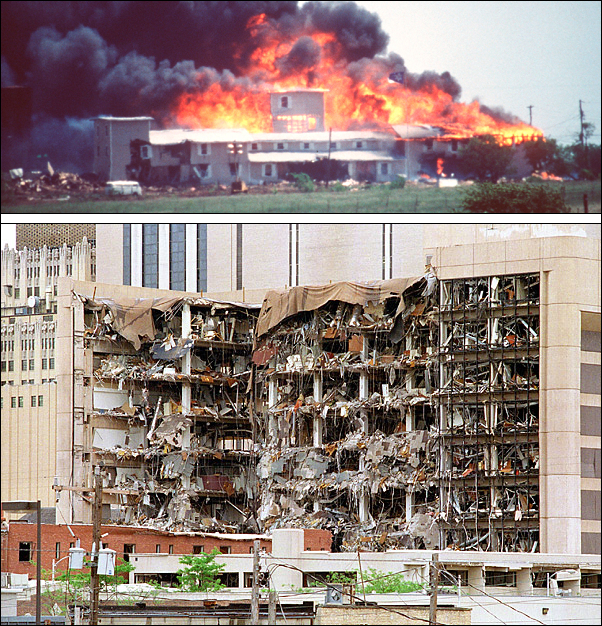Three from PBS: Ruby Ridge, Oklahoma City and the Turner Diaries
Saturday, February 18th, 2017[ by Charles Cameron — two sad and deeply moving documentaries from PBS: The American Experience, plus a short ]
.
Last week, PBS brought us the Oklahoma City bombing (at 1 hr. 53 mins, the longest of the three videos in this post):
I’m not usually prone to tears, but moments in this documentary moved me in much the same way that the HBO docu Manhunt‘s portrayal of the Camp Chapman attack did.
**
This week, the same PBS team explored Randy Weaver and Ruby Ridge (53 mins):
Here I was particularly impressed by Randy Weaver’s daughter, Sara. She not only clarified the apocalyptic element in the Weavers’ thinking:
My Mom interpreted some of the things in the Bible very literally. There’s a verse in the Old Testament about not having graven images, and so there was a point when the TV, you know, kind of left and my parents started to dig deeper into the Bible. They did believe in an apocalyptic future. And I think that they started to take that more seriously as they got ready to leave Iowa. Fear was–was a big part of it.
She also showed an impressive sense of closure on what must have been a horrific period in her young life. Close to the end of the film, two find clips are juxtaposed:
Jess Walter, Writer: People focused so much on who was to blame. But if you look at what happened and how many times it could have been averted and avoided, how many mistakes had to be made, and how many times both sides would multiply the mistakes, the question of who was more to blame is less interesting to me than the question of how did an all-American Iowa family end up with these beliefs. And how did the government end up treating them like a group of armed terrorists?
Sara Weaver, Daughter: I do know there’s a lot of remorse and I know that the FBI uses what happened to my family as a training tool as to what not to do, and that is hugely gratifying to me. But the same way they stereotyped my dad and blew him up into this thing he wasn’t, I think a lot of people do that with our government as well. And when you operate out of misinformation and fear, things can go wrong.
Powerful, even-handed.
**
Also posted very recently: a short film (8 mins) in which JM Berger discusses the Turner Diaries:
Berger’s calm and clear narrative of the impact of William Pierce’s awful book is admirable — as is his more detailed exposition of the same topic in his ICCT report, The Turner Legacy: The Storied Origins and Enduring Impact of White Nationalism’s Deadly Bible.
**
There’s some clear overlap between the three films. All three are highly recommended.



